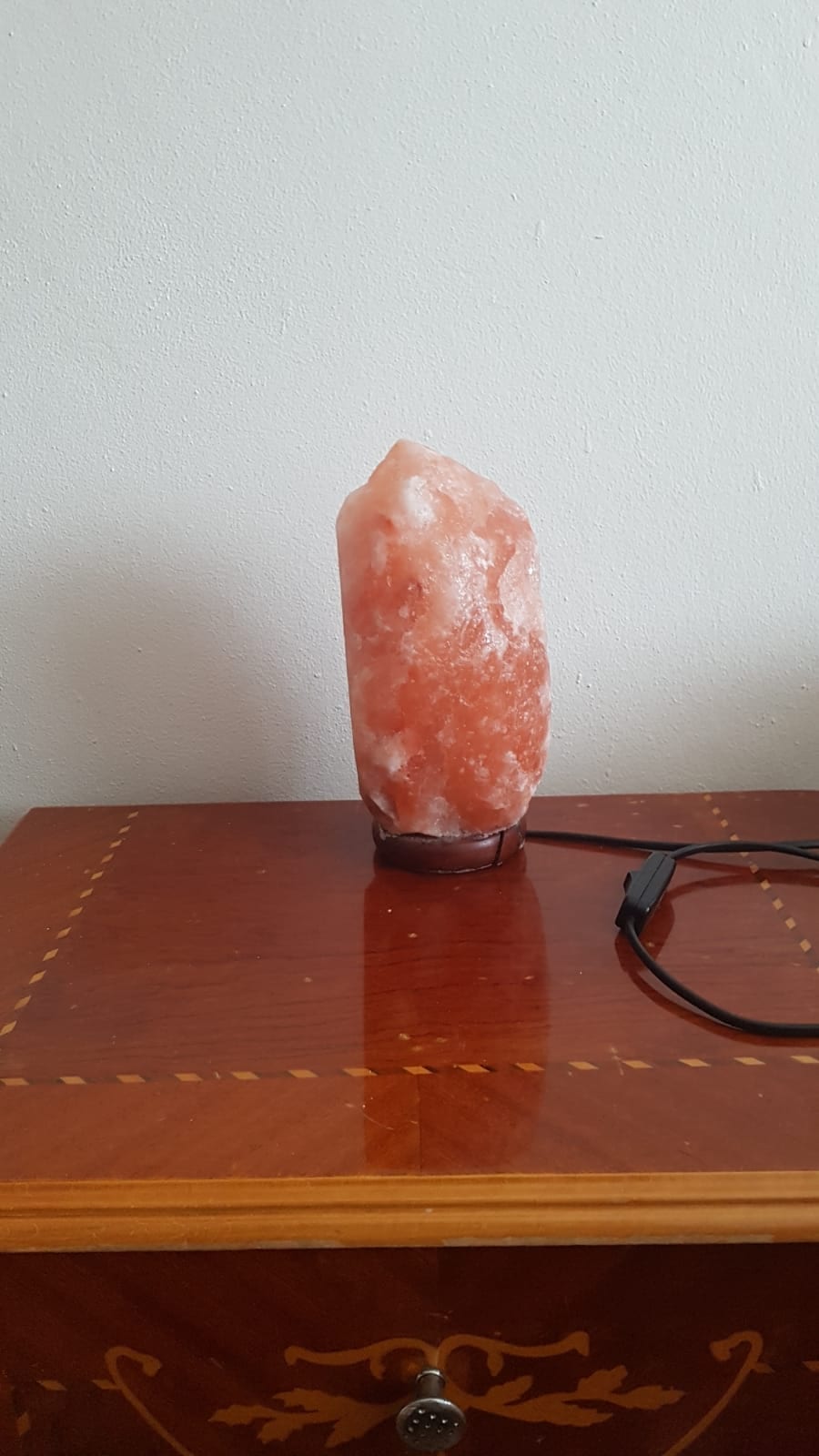Sinem Çaka
Sakarya, Turkey
Sümeyra Topal
Kahramanamaras, Turkey
Nursan Çınar
Sakarya, Turkey

rock salt used in bedrooms in Turkey
In many societies, there are traditional practices performed to protect babies from magic, witchcraft, or the evil eye. At first, it may seem that these practices would have no particular effect on health. Some of these traditions bring psychological relief for the family, but some may delay the treatment of a disease or cause harm to the child.1
One of the traditional practices performed in parts of Europe and the Middle East is salting of babies. Along with the symbolic and life-giving nature of salt throughout history, salting has been a part of traditional practices for millenia. Homer said salt was a “sacred” substance and Plato described it as “a dear substance of the gods.” Salt thrown into the water is thought to increase its sacred properties, and Dioscorides emphasized the cleansing properties of salt. Galen recommended the salting of newborns to ensure a hard skin and better hygiene. Soranus described newborns being swaddled after sprinkling them with water and salt. Salting is performed as part of rituals of redemption. In the Bible, scrubbing with salt was among the practices recorded immediately after the birth of a baby. This practice is maintained today among some Jewish communities as well as in Syria, Palestine, Jordan, Qatar, North Arabia, western Iran, and Turkey. It has spread to some parts of the Balkans and Greece through the influence of the Turks. 3,4,5
Salting babies is still observed in the neonatal period in Turkey, and is thought to bring abundance and blessings to the newborn. References are widespread in folklore among the Turks, especially in Anatolia. Immediately after birth, the baby is salted to prevent a bad smell, to prevent sweating and rashes, to ensure a nice, smooth, puffy body, and to ward off arrogance. Salt is also believed to protect newborns from the evil eye. Although there are cultural differences, salting may be performed on the 3rd, 4th, 7th, 20th and 40th days after birth.1,2 This practice is performed by scrubbing the baby’s whole body with salt, especially the neck, armpit, perineum, feet, palms, and inside of the mouth. It may be performed by washing the newborn baby’s body with fine salt alone or salty water. Honey and sugar may also be added to salt to be applied to certain parts of the body.1,6
The following is a true story from a person salted as a newborn:

“In Anatolian territories where I was born and grew up, everyone has been certainly exposed to traditional practices on a page of their life story. Whether your family is educated or not, there is no possibility that these applications will not be implemented after your grandmother, midwife, or a leading senior member of the family says to your mother, “O bride, good luck on your baby, may your baby be energetic and pure, your family be abundant, our tradition be long.” In my story, that I heard from my mother, salting practice was a tradition in our family and has been performed with ceremony and celebration for years. I learned that I was salted when my mother, in a crowded circle of friends one day, told them: “My kid never sweats. As soon as he was born, we wrapped and salted him.” I was surprised by what I heard, and I tried to visualize this event, which I had not known about. I visualized different possibilities: was it like a mummy, or was it like a fish? One day, I asked my mother the traditional salting method. She explained the salting ritual by stating that, “After the fall of your umbilical cord, your grandmother sent a message to a leading family member for your salting. We said prayers to the rock salt that we had prepared previously. Salt is abundance, cleanliness, purity. Then, we thoroughly scrubbed your whole body, especially your neck circumference, armpit, perineum, and palms with salt so that you would develop, grow up fast, you would not smell bad or sweat when your babyish smell wore off, your breath and body would not smell bad, and your wounds would heal quickly. Until the salt gets wet. Your body remained salty until I breastfed you and you fell asleep, and after you woke up, we also washed you again with pure and clean water.”
In some regions of Turkey, salting is performed as part of a ceremony, and if it cannot be performed, it is believed that the newborn baby will have many health problems both now and in the future. While some have questioned whether salting could cause pain, redness, and deterioration of a baby’s sensitive skin, the elders in our community they say they have never witnessed any bad side effects from this practice.7
References
- Aksayan, S, & Hayran, D. (1992). Sağlık, hastalık ve kültür. Sendrom, 4(2),12-14.
- Aksayan S (1983). Çocuk sağlığına ilişkin geleneksel inanç ve uygulamalar. Hacettepe Üniversitesi Sağlık Bilimleri Enstitüsü. Hemşirelik Programı Bilim Uzmanlığı Tezi.Ankara.
- Parker, R. (1983). Miasma: Pollution and Purification in early Greek Religion, Clarendon Press, Oxford.
- Dioscorides (2005). Pedanius Dioscorides of Anazarbus De materia medica, trans. Lily Y. Beck, Georg Olms Verlag AG, Hildesheim.
- Köse, O. E. (2017). Doğum Sonrası Bazı Kültürel Uygulamalar Ve Arkeoloji. Çukurova Üniversitesi Sosyal Bilimler Enstitüsü Dergisi, 26(1), 171-185.
- Eğri, G. Gölbaşı, Z. (2007). 15–49 yaş grubu evli kadınların doğum sonu dönemde bebek bakımına yönelik geleneksel uygulamaları. TSK Koruyucu Hekimlik Bülteni, 6(5), 313–320.
- Koyun, Ö. G. A., Çamuroğlu, C., Korkmaz, G., Menteşe, N., & Ocak, F. (2010). Kadınların gebelik, doğum ve yenidoğan bakımına ilişkin geleneksel inanç ve uygulamaları. Sosyal Politika Çalışmaları Dergisi, 22(22), 57-64.
SINEM YALNIZOGLU ÇAKA works as a research assistant at Sakarya University School of Health Sciences. Her research interests include nursing, maternal, newborn and child health.
SÜMEYRA TOPAL works as a research assistant at Kahramanmaraş Sütçü İmam University School of Health Sciences. Her research interests include nursing, maternal, newborn and child health.
NURSAN ÇINAR, PhD, is a professor at Sakarya University School of Health Sciences. Her research focuses on pediatric nursing, health promotion, breastfeeding, nurse education, environmental risk and health affect.

Leave a Reply